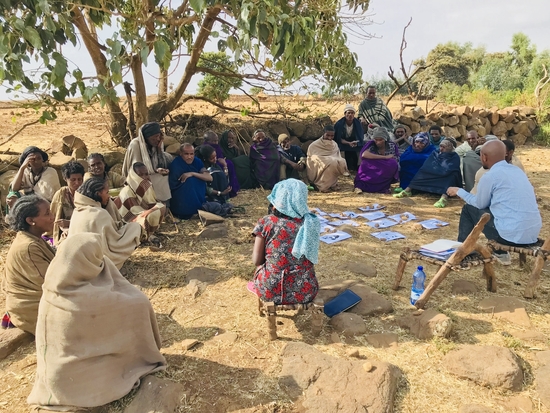news
Link NCA optimizes its quantitative approach
14/06/2018
© Lenka Blanarova, Action contre la Faim
We adapted the Link NCA methodology to heterogeneous contexts, which allowed us to develop 7 simultaneous studies in 7 refugee camps in Chad. This new approach enhanced the process efficiency and its attractiveness in the eyes of humanitarian actors. Following this experience, UNHCR has undertaken 2 new multi-sites studies in Ethiopia.
Data correlation is now a new step in the quantitative phase of the Link NCA in the form of bivariate or multivariate analyses. This new element allows us a finer analysis of our results. It highlights plausible relationships between different contributing factors that can be examined later during the qualitative inquiry.
This adaptation has led us to engage in evolutions on the management and the analysis of quantitative data collected in the field.
For this purpose, a study has been launched with the aim of producing a set of tools to facilitate statistical analysis and optimize the management and exploitation of the collected databases. Alexandra Humphreys, SMART expert, formalized an analysis routine and compared three programs: ENA, Epi Info and R to develop quality controls beyond the tests covered by the ENA plausibility check.
Evaluation of existing NCA Link tools
The documentary review of available Link NCA resources showed the need to reinforce technical guidance, as well as constitute a systematic and replicable protocol for the management and analysis of quantitative data studies.
Formalization of an analysis routine
Based on this observation, Alexandra developed this protocol and its checklist. It systematizes each stage of data management and analysis to facilitate monitoring and ensure quality. The checklist is now a clear support for analysts in their field investigation work.
Data correlation is now a new step in the quantitative phase of the Link NCA in the form of bivariate or multivariate analyses. This new element allows us a finer analysis of our results. It highlights plausible relationships between different contributing factors that can be examined later during the qualitative inquiry.
This adaptation has led us to engage in evolutions on the management and the analysis of quantitative data collected in the field.
For this purpose, a study has been launched with the aim of producing a set of tools to facilitate statistical analysis and optimize the management and exploitation of the collected databases. Alexandra Humphreys, SMART expert, formalized an analysis routine and compared three programs: ENA, Epi Info and R to develop quality controls beyond the tests covered by the ENA plausibility check.
Evaluation of existing NCA Link tools
The documentary review of available Link NCA resources showed the need to reinforce technical guidance, as well as constitute a systematic and replicable protocol for the management and analysis of quantitative data studies.
Formalization of an analysis routine
Based on this observation, Alexandra developed this protocol and its checklist. It systematizes each stage of data management and analysis to facilitate monitoring and ensure quality. The checklist is now a clear support for analysts in their field investigation work.





